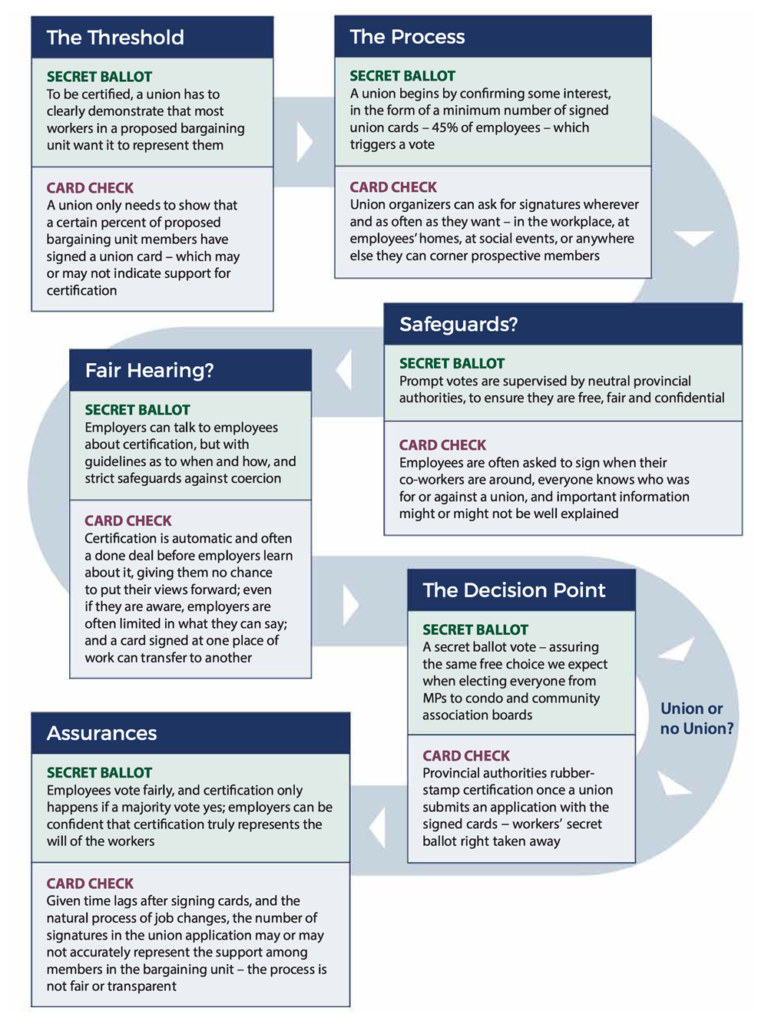Ominous Signs for Construction Jobs in B.C.

Chris Gardner, President, ICBA
After an unprecedented long period of post-election uncertainty, a minority NDP government has taken power in Victoria – with the formal backing of the Green caucus. And while speculation abounds about the likely shelf life of this government, I believe current dynamics suggest it will remain in power for at least a significant proportion of the usual four-year term.
So in this Monitor, we take stock of what that may mean for B.C. – drawing from the platforms and accord of the two parties, ministerial mandate letters, and various public statements from key figures within the NDP and Green Parties.
We begin with the current outlook for several resource-development and other major projects, upon which thousands of existing and even more future jobs depend. None of these projects were treated very favourably in the NDP or Green platforms, and if anything the outlook has worsened since they formally took power. Indeed, Pacific NorthWest LNG was just cancelled – a $36 billion investment lost.
The message from Pacific NorthWest LNG’s decision is that we have to move faster to compete globally – but the new government is signalling that we will be moving more slowly, if at all, on many major projects.
We also look at some of the central players in the new government – with a particular focus on those with construction-related portfolios – and at the agendas they’ve been tasked with implementing. As with the cabinet as a whole, these people represent a narrow segment of views and backgrounds, with markedly little experience in entrepreneurship, small business or the private sector.
Finally, we look at the single most troubling of all the Labour Code reforms the NDP would like to implement – elimination of a secret ballot for union certification. Encouragingly, this one is a bridge-too-far for the Greens, and one we hope they’ll prevent the NDP from crossing.
As to the rest of the NDP’s agenda and how this all unfolds, we’ll be watching carefully and intervening forcefully if we see construction sector and major provincial interests jeopardized – as we already have in recent weeks with our campaign to support Site C. And if you haven’t already joined us in the effort, please be sure to sign up as part of our #Get2Yes Community: http://get2yes.icba.ca.
Major Projects Check In
These four energy and infrastructure projects all have their environmental approvals, and construction was either underway or on the cusp of proceeding at the time of the election.
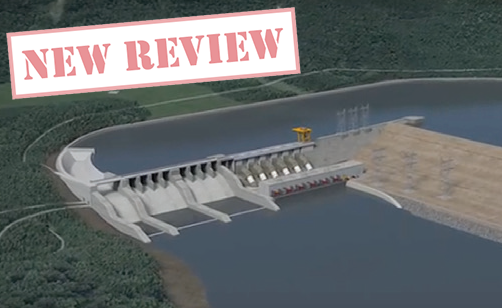 Site C Clean Energy
Site C Clean Energy
A $9B investment in clean power designed to operate for 100+ years has now been sent back for yet another review. Best case? Delays that cost taxpayers. Worst case? 2,500 people currently working on the project get pink slips.
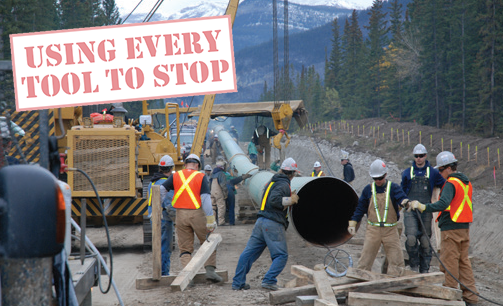 Trans Mountain Pipeline
Trans Mountain Pipeline
In what experts have called a violation of the rule of law, the NDP has pledged to use “every tool available” to stop this $7B project. Recent speculation has focused on making it “prohibitive” for the project to get provincial permits.
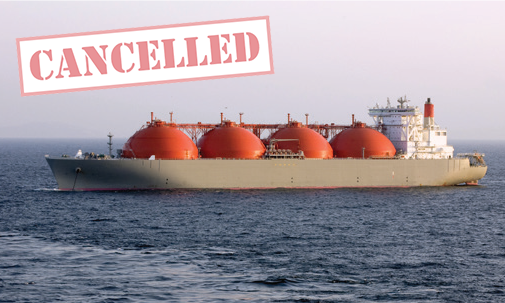 Pacific NorthWest LNG
Pacific NorthWest LNG
Global market dynamics and skepticism on the part of the new government – the threat of increased regulation and taxation – contributed to the collapse of the business case for what might have been the largest-ever private sector investment in B.C.
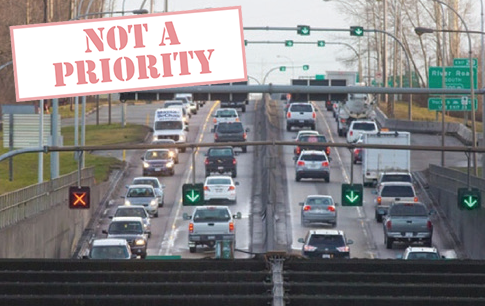 George Massey Tunnel
George Massey Tunnel
The province is leaving this $3B project up to regional mayors – most of whom oppose it, except for the mayor of Delta. If the bridge is cancelled, extending the life of the existing tunnel will come at a high cost.
Who and What: NDP Minister and Their Marching Orders
The NDP front benches are dominated by trade union organizers, environmental activists, community organizers and other special interests, with sparse representation from outside Greater Vancouver and Victoria. Government MLAs are short on experience in small business or the private sector. Further, a bleak outlook for the construction and responsible resource development sector emerges from a close look at the Green and NDP platforms, the accord between the two parties, the mandate letters issued to ministers, and other indications of next steps.
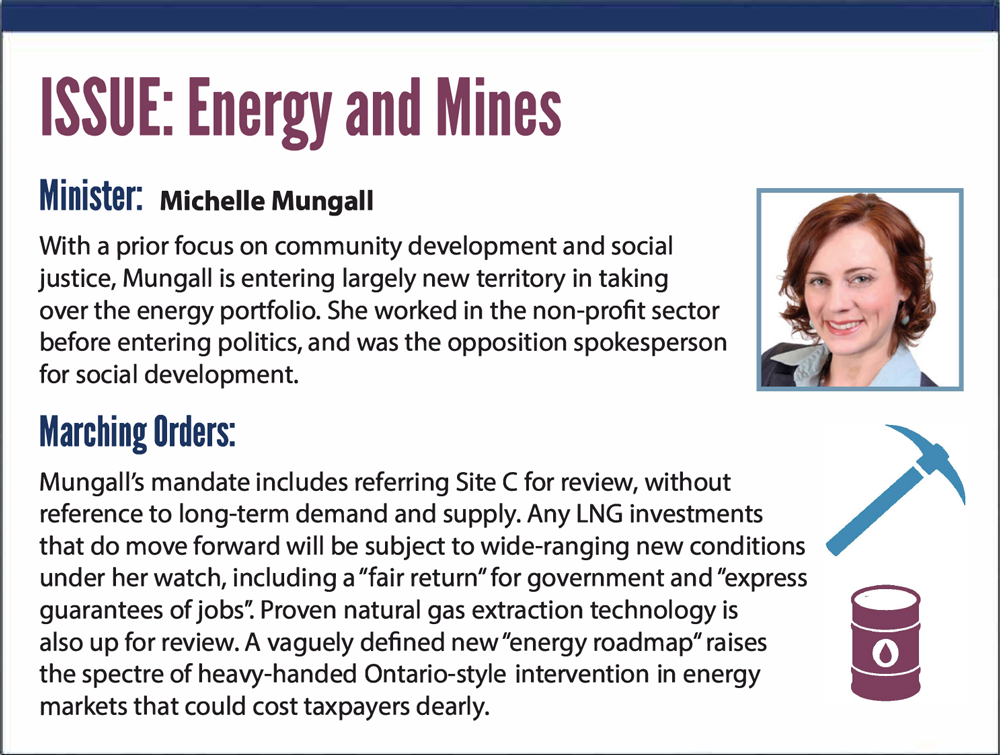
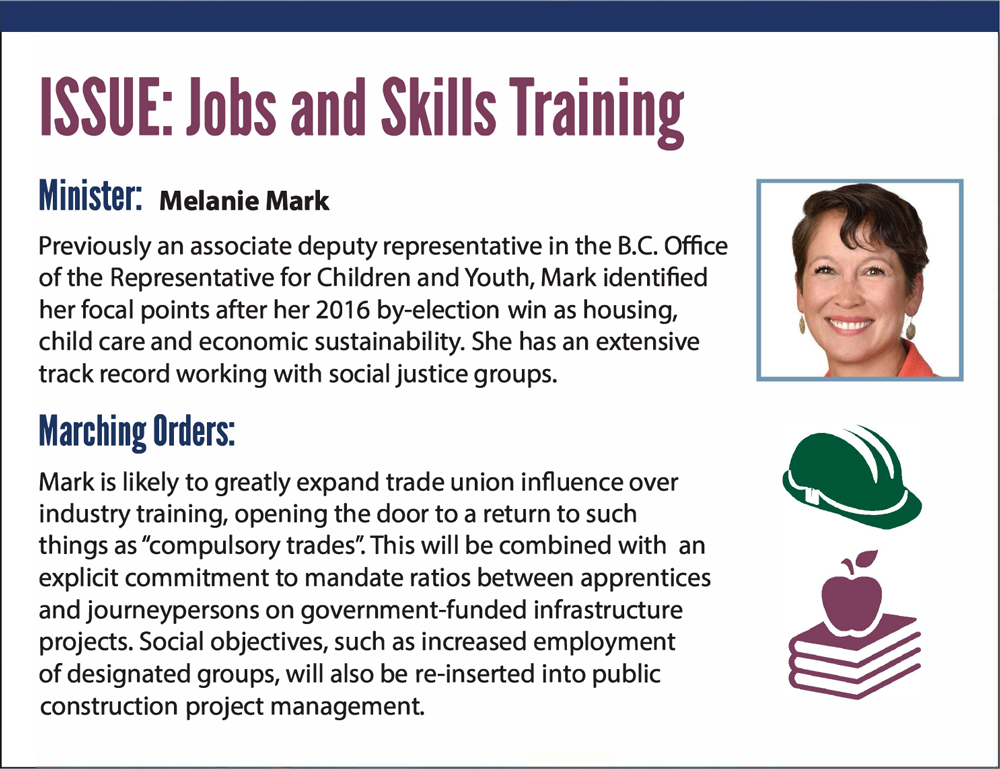



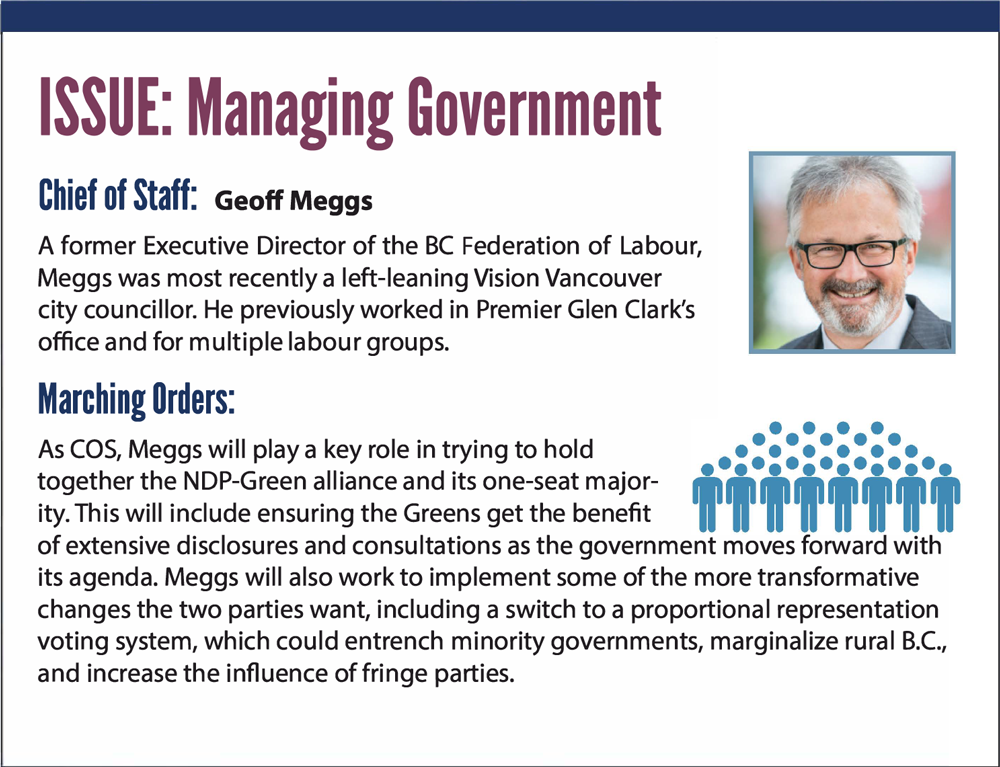
Stacking the Deck with Card Check Unionization
Joining a union is a deeply personal and very important decision – one that can impact the competitiveness and viability of a business. The BC Liberals and Greens favour the current democratic approach to determining whether a union gets certified – employees get to vote using a secret ballot. The governing NDP is determined to turn the clock back to “card check.”
The card check approach removes the secret ballot and opens the union certification process to intimidation and coercion.
Vote or Sign: Two Different Paths to a Crucial Decision
